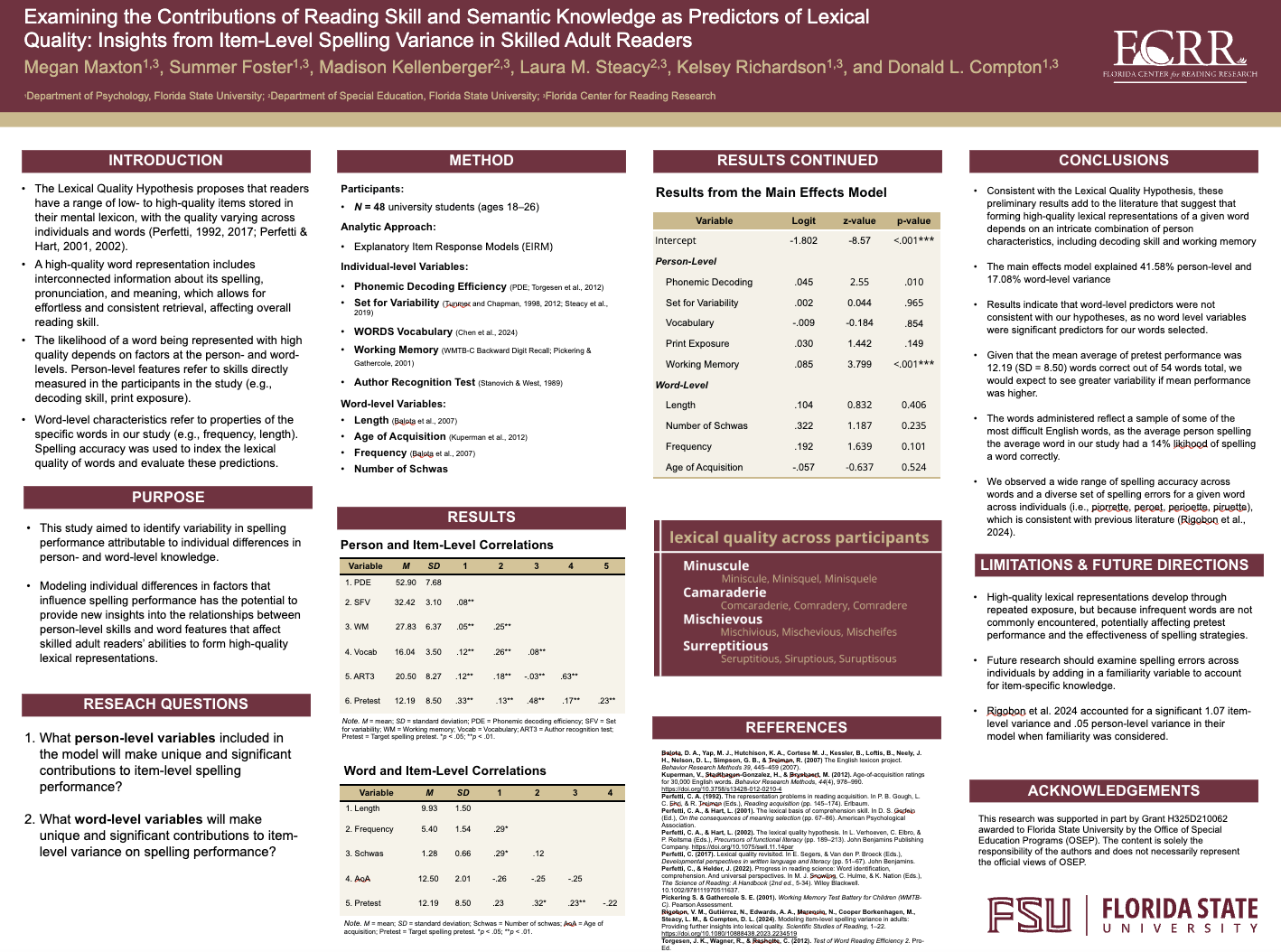Research Symposium
25th annual Undergraduate Research Symposium, April 1, 2025
Megan Maxton Poster Session 2: 10:45 am - 11:45 am/ Poster #188

BIO
Hello, my name is Megan Maxton, and I am a senior at Florida State University, set to graduate with a bachelor's degree in Psychology and Criminology along with a minor in Child Development. I plan to further my education by pursuing a doctorate in Developmental Psychology, with a research focus on the interplay between social factors and early literacy skills in shaping children's academic outcomes.
Examining the Contributions of Reading Skill and Semantic Knowledge as Predictors of Lexical Quality: Insights from Item-Level Spelling Variance in Skilled Adult Readers
Authors: Megan Maxton, Dr. Donald ComptonStudent Major: Psychology and Criminology
Mentor: Dr. Donald Compton
Mentor's Department: Psychology Mentor's College: Arts and Sciences Co-Presenters: Summer Foster
Abstract
The Lexical Quality Hypothesis proposes that readers have a range of low- to high-quality items stored in their mental lexicon, with the quality varying across individuals and words (Perfetti, 1992, 2017; Perfetti & Hart, 2001, 2002). A high-quality word representation includes interconnected information about its spelling, pronunciation, and meaning, which allows for effortless and consistent retrieval, affecting overall reading skill. The likelihood of a word being represented with high quality depends on factors at the person- and word-levels. Person-level features refer to skills directly measured in the participants in the study (e.g., decoding skill, print exposure). Word-level characteristics refer to properties of the specific words in our study (e.g., frequency, length). Spelling accuracy was used to index the lexical quality of words and evaluate these predictions.
Method: Explanatory item response models (EIRM) explored simultaneous contributions of person-level (e.g., participant’s vocabulary skill) and word-level (e.g., word’s age of acquisition) predictors to the spelling of 54 commonly misspelled, difficult English words in skilled adult readers. Results: Preliminary analyses suggest substantial variance among individuals in item-level spelling accuracy accounted for by person-level set for variability, vocabulary, and print exposure, as well as word-level frequency and age of acquisition.
Conclusion: Results suggest important predictors at the person and word level. Consistent with the Lexical Quality Hypothesis, results add to the literature that suggest that forming high-quality lexical representations of a given word depends on an intricate combination of person- and word-level characteristics, including reading experience and semantic variables.
Keywords: Reading, Language, Spelling, Acquisition

